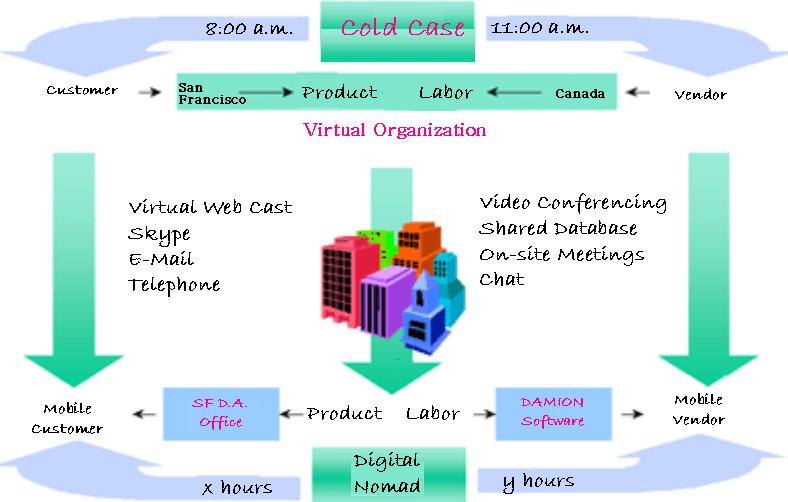I am believer in the benefits of goal setting and how they help you to succeed in business and your personal life. Each of us has goals but from what I read, only 3% of us actually write them down and act upon them. So to help you to not be one of the 97% who do not write goals, below is an article on goal setting tips.
Carole DeJarnatt
10 Tips For Great Goal Setting
By Sam Kotadia
Less than 3% of people write down their goals. We are statistically more likely to spend time organising exactly what we want from the supermarket instead of working out what we want from life. Crazy but true.
The chances are that you commit most of your working day to helping your boss to achieve their goals, instead of spending time working on your own.
One way to enhance the quality of your life is to learn how to apply an effective goal setting program. These tips will help you on your way to doing this.
1. First of all why set goals?
The biggest predictor of success is direction. If you don’t have something to aim for in life, the chances are you will end up achieving very little. Almost every successful person in the world started with a clearly defined goal in their mind of what it is they wanted to achieve. This provided them with a fundamental sense of purpose and direction.
The beauty of setting goals is that they help to streamline your life, adding a focal point and something tangible for you to work towards. In some ways goals are like beacons helping you to stride through life towards something that holds special importance to you. What that special something is, is up to you.
2. Working out what you want
It amazes me how many people work towards goals that they don’t really want. Usually the motivation to achieve these goals comes from a feeling that you should want them. Fame, recognition, and a high status job, are some of the modern day desires that society conditions people to think that they want. It is important that all goals and aspirations come only from a place of wanting and not from a place of should.
When you cut out all the noise that society deafens you with, and directly ask yourself, “what is it that you want?” honestly and whole heartedly, you are able to generate goals that come from a place of inspiration, and not from a place of conditioning. It is from inspiration that all worthwhile goals are created. When you work from here your commitment to your goals is full of desire, passion, and zest.
Set goals based on your values. Working out what your goals are is often the hardest part of the goal setting procedure, and the part which requires most thought. The first step to working out what you want is to establish what is important to you in life.
If for example you value your friends and family above anything else, then it makes sense to set a life goal of spending as much quality time with these people as possible.
If financial independence is valued highly you may chose to construct a goal that focuses on reaching a specific sum of money within a set time frame. Ask yourself a series of incisive questions that force you to address who you are and what is important to you in your life.
Consider answering the questions below and start devising goals around the answers you produce:
What would you want to achieve if you knew you could not fail?
If you could leave one message to the world what would it be?
Who are you when you are at your best?
If you had one day to live, what would you do?
The responses to these questions should provide you with some information about what is important to you in your life and aid the goal setting process.
3. How will you know when you have reached your goal?
Your goal needs to be clear and precise so that you know exactly when you have reached it. One way to do this is to set the goal as a numerical figure. If you can produce a clear ‘yes’, or ‘no’ response to whether you have reached your goal then you have successfully created a measurable objective.
For example, consider the goal of generating a financial target of ?100,000 by the end of the year. The numerical and precise nature of your goal allows you to effectively evaluate whether or not you have successfully reached your target when the end of the year arrives.
4. Does your goal make you go ‘wow?’
It is important that the goal you set is wildly ambitious. Old schools of thought believe that goal setting should be realistic and attainable, avoiding excessive ambition. On the surface this makes perfect sense, because you want to set goals that you have a good chance of hitting. And arguably, failing to hit your goals because of aiming too high may leave you feeling little despondent.
The reason why I suggest that goals should be set as high and as ambitious as possible, is because there is no logical reason why you cannot achieve whatever it is that you want.
It is only through your negative internal belief systems that you decide what is and what isn’t realistic. Years of conditioning, of being told what you can and cannot achieve have encouraged us to construct a warped view of our true potential.
This is why unrealistic and wild goals ironically are sometimes closer to what is realistically possible compared to your conditioned view on what is realistic.
If you set the ambitious goal of making ?1,000,000 in 1 year, work with dedication and drive and end up making ?600,000, I am pretty sure that you will not feel despondent at the end of the year.
It is certainly better than aiming to make ?50,000 within the year, and hitting the target easily, without having to push yourself in any way.
Aim for the stars and you will catch the moon
5. Have you written down your goal?
Once you have precisely and clearly established what it is that you want to aim for, write it down. Your goal needs to be written down in a specific style in order to be successful.
Although goals are inherently in the future write your goal in the present tense. For example; instead of writing ‘I will have a successful business’, write ‘I have a successful business.’ This will add immediate impact to the strength of your goal.
The second point is to make sure when you write down your goal it is something you want instead of something you don’t want.
If you focus your energies on what you don’t want unfortunately you will attract what you don’t want into your life.
It is always more powerful to move towards something, instead of away from something. For example wanting to make more money is much more effective than focusing on getting out of debt.
6. Is any goal better than having none at all?
Even if you do not master an effective goal setting program at your first attempt, devising a bad goal setting program is better than producing nothing. Setting any kind of goal is better than relying on the lap of the gods to decide your fate.
Teddy Roosevelt once said, ‘in any moment of a decision, the best thing you can do is the right thing, the next best thing is the wrong thing, and the worst thing you can do is nothing.’ Even if you obtain a goal that you realise you did not actually want, at least you are one step closer to finding what it is you really want. As Tom Watson (Founder of IBM) famously said; “if you want to be a success, double your rate of failure.”
7. Have you fallen into the trap of setting too many goals?
An easy trap to fall into is setting too many goals. Successful people usually only set one goal at a time. This focuses their efforts on one target, speeding up the actualisation of their goal. Once the first goal is completed, you can then look to tackle your next one.
If you set too many goals in your life, the danger is that your focal powers will become so spread out that you end up achieving nothing. As the old proverb states; “if you chase two rabbits both will escape.”
8. Are you in the right state?
The meaning of the word goal is outlined as a ‘clearly and well defined measurable state.’ The goals you aim to achieve in life-whether it is to marry and have a family, to build a multi-million pound business, or own a mansion in the middle of the country are strong motivations because of the way you envisage they will make you feel once you have obtained them.
If you believe that having a multi-million pound business will make you feel secure, powerful, and liberated, then these desired states are the driving force behind obtaining the goal..
Physical experiences are a bit like vehicles that are designed to take you from your current state to your desired state. Before setting out to make your dream become a reality it is important that you associate with the internal state that you will experience once you have obtained your goal. For example if building a multi-million pound business will make you feel secure and liberated, it is important that you generate these emotional states before you begin building your empire. This will optimise and speed up the process of actualising your goal.
9. Have you taken action?
Unaccompanied, all the ideas in the world are worth nothing. However if you couple ideas with productive action, then your innovations can begin to take form.
It is common for people to spend a significant amount of time constructing worthwhile goals, but if you are not prepared to act on these intentions then nothing will ever be achieved.
All successful people have one thing in common; they get more done in the time given to them, than most people.
Whatever lofty idea you have in mind, you must begin working towards it the moment that your goal has been set.
It is important to develop a sense of accountability and commitment towards taking action, otherwise you may find that you talk yourself out of making your goals a reality.
10. Do you have a deadline?
Remember to give yourself a deadline to achieve your goal, otherwise you could end up spending a lifetime working towards it. Without setting a deadline you run the risk of becoming a procrastinator, always putting off the things you need to do. By constructing a concise time plan you streamline your focus, making sure that every second of your time up to this date is dedicated and organised to achieving your aim.
Remember: A goal is a dream with a deadline
Conclusion
If you are going to be successful, you need to make sure that you live your life with a real sense of purpose and direction. Creating goals is one of the most effective ways to do this.
Sam Kotadia is the managing director of Mindsport ltd. The company delivers extensive free resources to help a global audience get an edge in the realms of sport, business and life. All resources can be found at http://www.mindsportlive.com/
Article Source: http://EzineArticles.com/?expert=Sam_Kotadia
http://EzineArticles.com/?10-Tips-For-Great-Goal-Setting&id=700258













